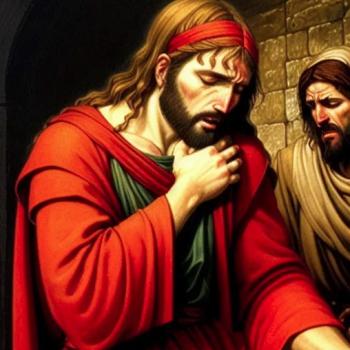Where Shame is, there is also fear. – John Milton
Shifting the Shame
I was at a meeting recently when someone said, “I have had to learn to shift the shame.” It was a phrase that caught my attention. I jotted it down in my reminder app and have been pondering the phrase from the time that I heard it. I know that I can’t shift the ‘blame’ because I deserve all of the blame that anyone would point at me (and probably more). But learning to shift the shame is an internal soulcare that I am just now learning to embrace.
I have always been a person that has experienced guilt. Guilt and Shame have defined me for a long time. It started when I was born, I’m sure, as I don’t remember a time that I didn’t experience a sense of guilt. In times that I wasn’t doing anything wrong, I had an acute sense that I should feel badly about that. And then when I did do something wrong, the guilt was 10 times worse. Guilt is a vehicle for reconciliation, remorse, and forgiveness. When one feels guilty, they are driven to reconcile and be made right with the world around me. I don’t know that I have ever conquered the skill of being made right with the world around me. The bible says that “His Kindness leads us to repentance” and I suppose in a macro sense, that is very true.
Kindness is a good motivator, and God’s kindness, his simple grace that lets me live through each and every day, should be enough for me to repent, change, be different. Experiencing kindness means that I have to shift the shame that I have heaped upon myself. “I don’t deserve” or “I’m not worthy” are two of the lies that I bought into deeply for years. This shifted into selfishness where I self justified actions that were just wrong and instead began believing things like “I deserve this” or “I’m worthy of so much more.” The pride and arrogance that was inside me in both instances was powerful.
I could never quite balance the two polarizing thoughts. Yes, I am worthy, and no, I’m not all worthy. Yes I am deserving AND no I don’t deserve. These are difficult things for me to understand and even harder for me to understand. Taking a compliment was, at times, impossible. Not receiving a compliment, at times, caused me to shudder at the very core of who I was.
One of the easier illustrations of the shame that was internally driven and motivated is my interaction with ‘preaching.’ Because this is the most public act of a Pastor, of which I am a former, it is often the measuring stick by which a Pastor is ruled. The ruler is the response of the audience. Was it funny? Was it engaging? Was it ‘biblical’? Was it ‘heretical?’ Were all of the right things said and all of the wrong things corrected?
The very identity of a Pastor often rests in their ability to ‘wow’ a crowd. I can remember one of folks at my church several years ago say to me, “When are you going to become a ‘real’ pastor?” (meaning, when are you going to start preaching weekly somewhere?) What was I, a fake one? Well maybe in some regards, but I thought I was doing the will of God and being the best Pastor (minus preaching) that I could be. When I would get to preach in ‘big church’ all eyes were on me to see if I could perform. The measuring stick was up and aimed at me, ready to accuse with each word that was uttered out of sequence or anything that didn’t tow the evangelical line.
The end goal of preaching for me became one that was empty and void of all joy. The end joy was to become a ‘real’ pastor and leave behind the life of a Jr. Pastor. I wanted to ‘make it.’ In most careers, people have a goal to continue to climb the corporate ladder, to move up in the company, and to become something within that world. There are very few people who would say that they have arrived, when they reach the first rung of the bottom of the ladder.
So to have this desire to leave behind my Jr. Pastoring, was probably not outside of the norm, but it also elicited extreme guilt in me. Did I want something that wasn’t attainable? Did I desire something that someone else had? Was I sinning in this? Yes, to all of those things. But should I have experienced the depth of shame that guilt left at my door?
Had I learned to shift the shame earlier, and understand that not everything hung on me or my success or failure, I probably would be in a very different place right now, than I find myself. I’m happy with where I find myself. I have a good job, I’m with my family, and I am able to eat 3 square meals a day. I am able to get through each day without inappropriately self medicating. This is made possible by shifting the shame inside of me.
Taking deep feeling of inadequacy and filing them away, allowing who I am and what I am learning be my identity instead of allowing what I am not define me. Kermit, a friend of mine, once said “Those thoughts are not productive. They will lead you to a place of deeper darkness. File those away. Disconnect the tail lights and don’t dwell on the rear view mirror.” At the time, it was good coach speak, but since those moment of utter despair, it has become a mantra within me. Leave behind the things that don’t define me and hold onto the attributes that are clearly my identity.
Why I gave up on Preaching.
And how it’s connected to shame.
“Well done on that sermon.” I would ponder this for hours. Was it really well done? Did I study enough for it? Should I have said something different? Did it make sense? Did the people that mattered most to me like it or do they just put up with the sermon because they have to as they are attached to me? What could I do differently? How could I improve. These things were constantly in my head, on my mind, after a sermon that received a compliment.
“Your sermon was good but…” These were the words of a supervisor that meant well in teaching me how to preach properly. I would dissect the sermon that I had given for 24 hours before the second dissection would take place. I tried to anticipate what the feedback would be, and give myself harsher feedback before the onslaught, maybe to numb the pain that criticism would trigger in me. I think you are supposed to give three positives for every negative, and looking back, that probably happened, but in the moments of criticism, I didn’t sense that balance. Self loathing and self defeat were constant in the back of my mind.
This led me to defeatism, basically saying that preaching was a worthless practice, because no one listened or cared. And if they did listen or care, all they did was criticize. And if they did listen and care and didn’t criticize, then they obviously weren’t listening or caring.
Both of the above reasons were why I gave up on preaching. There are a hundred reasons that I suppose I could give for giving up on preaching, but the truth of the matter is that I gave up on preaching because of the shame that I heaped on myself after each and every time that I got up to preach. Even to this day, I look back and absolutely cringe at the idea that parents gave me the responsibility to somehow say something to their teens that would matter.
I cringe at the arrogance that I had that I thought I could preach week in and week out, and become a ‘great communicator.’ I gave it up because the goal of impact and teaching was drowned out with my own shame. Measuring up was always an issue when it came to the simple act of giving a message. The heightened nature of the public speaking event brought great pressure, mostly heaped on me, by me.
I had been asked to preach, the very last time that I would be asked to preach at the church that I was serving at, for the very last time in my pastoral career. It was just before the time that I would self destruct and delve deeply into the darkness of the hole in my soul. The anxiety that I had felt for years around the act of preaching became debilitating. I obsessed about what I would say, how I would say it, but even more profoundly, how was I supposed to LIVE it? I was in a place of utter despair. I don’t even remember what the content of the sermon was supposed to be, but I had worked with the worship pastor to pick songs, service flow, etc. The feeling of shame, inadequacy and a lack of confidence shrouded any sense of confidence that I could muster. I knew that I would fail. I had failed so many times, or at least that is what I had believed for too long. I would fail in the eyes of those around me. I was already failing in the lives of the people that I most loved and loved me. I would fail me. And the endless cycle of shame would continue. I couldn’t do it anymore. I couldn’t begin to live this again. I would never be a ‘real’ pastor. Instead, I would always be the Jr. Pastor.
Others tried to make that palatable by saying things like, “You are a good ‘second chair’ leader.” I was even given a book to ponder called “Leading from the Second Chair.” It sought to affirm those that were not in the ‘real’ pastor seat and instead living as Jr’s by saying that the gifts and abilities that were possessed by the Jr Pastors were important to the church. Going so far as to say that it was essential that second chair leaders lead, I tried to self talk my way into being the best second chair leader that I could be. After failing miserable at that, three times in a row, I gave that dream up as well. Created to help others, but I was not necessarily to lead from the second chair. I know that now. I wish I had known that then. Helping those around me succeed is something that I thrive in.
Coaching, teaching, and helping are the things that bring life and that I have a relative degree of confidence in. I never did preach that last sermon that I was asked to preach. The one that I had preached a thousands time in my own head. My co-worker preached it the weekend after I was in the psych ward. I’m sure he did a great job, and I appreciate him covering for me. I hope that his words had tremendous impact to the listeners.
I won’t preach again, I know that. Seeking to be a great communicator, when you are not, only ends in heartbreak and frustration. For someone that is a perfectionist with himself, definitely couldn’t win with the preaching thing. I was never good enough for me, and the feeling of guilt, shame, and the weight of pain was heaped upon me, by me, each time I would preach.
I gave up on preaching. I haven’t given up on God. Or me. And I still enjoy listening to some of my favorite communicators. I’m hesitant to criticize them, for God knows I have no box to stand on, and I will always be enamored with someone’s ability to connect with their audience. It’s something I admire in others, but something I could never attain from within me.
Take the Blame. Shift the Shame.
There is clearly a difference between blame and shame. I tend to give blame away to others and hold onto the shame that is within me. I am learning to take the blame for the things that I have done wrong. They are mine to own, to deal with, to learn from, and to move forward in the right direction. But the shame that I allow myself to wallow in is not mine to hold onto. I continue to learn that God takes that shame, shows his kindness, and offers forgiveness. I can rest easy, assured, and with confidence that my shame is not mine to bear without God taking that shame and flushing it for me. I certainly have much to be blamed for. But holding onto that blame, leads to deep shame, and that is an unhealthy place for me to be. Shifting that shame is a good practice in thought stopping, and allowing God to do what he will do, in my own life.
I’m not a real pastor. In fact, I’m no longer any kind of Pastor. And that’s okay. I clearly have blame pointed at me for the pain that I have caused. But slowly and surely, my shame is being shifted and the weight of that shame no longer falls squarely and solely upon me. I am shifting the shame. It’s probably a lifelong learning process, and I won’t ever arrive, but for now, it’s good to practice. It’s good to be a shame shifter. It’s how I am currently navigating ‘life on life’s’ terms.












